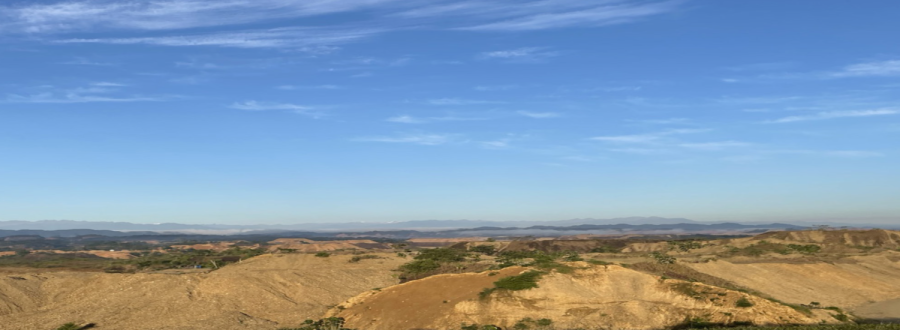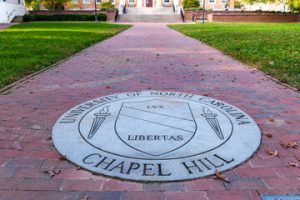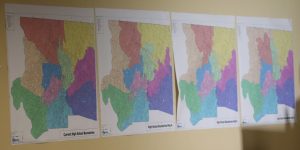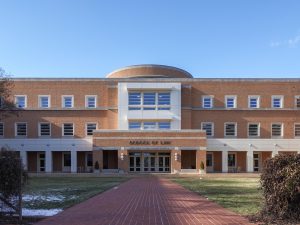Brazilian election delivers change for the Amazon
Wake Forest reacts to the outcome of the most recent presidential election in Brazil
Deforestation has ravaged the Amazon rainforest in most South American countries with a stake in the land, including Peru (above), Brazil, and Ecuador. Environmental experts predict that president-elect Lula will focus on decreasing logging in Brazil.
November 16, 2022
On the night of Sunday, Oct. 30, 2022, Brazilians and environmentalists across the globe alike watched as former president Luiz Inácio Lula da Silva — known popularly as Lula — beat his far-right incumbent Jair Bolsonaro in Brazil’s presidential election.
Lula, a 77-year old former metal worker, was president of Brazil from 2003 to 2010. After being imprisoned for a corruption scandal in 2018, his conviction was thrown out and Lula left jail early. He announced his plans to run for president immediately after leaving jail. Months later, at the midnight mark of Election Night, it was announced that Lula had won the race with 50.9 percent of the vote.
Lula’s win is pivotal for conservation of the Amazon rainforest, according to the Wake Forest University professor of Biology Dr. Miles Silman. Silman, who has conducted research in the Amazon, is the Associate Director of Science and Information Technology at the Amazon Scientific Innovation Center (CINCIA) in Peru.
“The Amazon crisis is not a local crisis. It is a global one.” said Silman in an interview earlier this fall.
Brazil holds approximately 60 percent of the Amazon, Silman explained. Due to its size, climate and sheer amount of trees, the Amazon sequesters a significant amount of the planet’s atmospheric carbon. As humanity faces the impending threats of climate change, large carbon sinks like the Amazon are crucial to slowing their deleterious effects.
“In the Amazon and beyond, we are rapidly losing one of our most valuable weapons in the fight against climate change,” said Silman.
It has been estimated that 20% of the Amazon rainforest has disappeared in the last 50 years, according to National Geographic. Along with that loss of land is a tremendous loss of species, from plants and animals to fungi and microbial communities. Genetic variation within these forest ecosystems is what makes them resilient to things like plague, drought, pests, and most importantly, to climate change.
Concerns over Amazon conservation in Brazil deepened in 2019 when Jair Bolsonaro came into power. During the first three years of Bolsonaro’s presidency alone, over 12,800 square miles of the Brazilian Amazon rainforest were cleared, marking a 60% increase from the three years prior.
“Throughout his term, Bolsonaro actively worked against any efforts to conserve the rainforest.” said Wake Forest professor Justin Catanoso, who also writes environmental news stories for Mongabay and attended the United Nations Climate Summit in Glasgow, Scotland last fall. “He stripped environmental enforcement measures, reduced government spending for science and environmental agencies, fired environmental experts from his consultants, pushed to weaken Indigenous land rights, and invested most of his support into the agribusiness and mining industries, both of which are responsible for the majority of the deforestation in the Amazon.”
Now that Lula has regained power, both Brazilian citizens and environmentalists are optimistic about the future of global rainforest conservation.
“Lula knows that the Amazon doesn’t just belong to Brazil– it belongs to the rest of the world too,” Catanoso said. “Brazil has the lion’s share of the Amazon rainforest– it needs to be protected and managed in a careful way. I think Lula is going to be the pivot in conservation that his country– and the rest of the world– needs.”
Expectations of Lula’s dedication to conservation for his future term are high because of his strong clampdown on deforestation during his previous presidency. However, Lula has also received criticism from environmentalists and citizens for his displacement of 40,000 people to construct the Belo Monte hydroelectric dam in the northern state of Para, which dried large portions of the Xingu River and impacted Indigenous and other communities who relied on it for food.
“Although Lula was certainly better for the Amazon and Indigenous communities than Bolsonaro, there were still major places of lack of oversight under his presidency.” said Rafael Lima, a Wake Forest School of Business fellow. Lima received the Pulitzer Center Student Fellowship Grant in 2019, which he used to study Indigenous land use in Brazil. “But in terms of managing the country as a whole? It would be hard to do worse than Bolsonaro did.”
As a citizen of Brazil, Lima said that although neither he nor his friends and family are experts in environmental or sustainability-related issues, it doesn’t take one to know that Bolsonaro’s Brazil was rock-bottom for rainforest conservation.
“As a Brazilian citizen and as someone who is concerned about the current climate crisis, I believe Lula is going to try to take some of our nation’s international leadership back.” Lima said. “It’s a feeling that I haven’t had in ages about my country. I feel as if we are rising back to our feet after a very very long battle.”
Lima’s predictions are already coming to fruition. Despite not formally taking office until next year, Lula was invited to this year’s UN Climate Summit, COP 27, in Egypt, and will attend the event beginning on Wednesday, Nov. 15.
“It’s not just Brazilians– other countries are excited too, which is a huge shift from the palpable fear and anxiety foreign diplomats were expressing about Bolsonaro’s environmental deregulation at the last COP.” Catanoso said. “In his victory speech on the night he was elected, Lula emphasized repeatedly that he would focus his energy foremost on the Amazon. For the future of biodiversity, of climate change, of our planet– that is incredible.”















